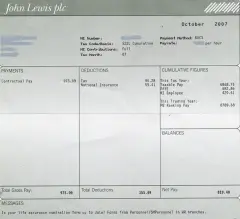
An employer can get away without paying its employees as long as the employees allow it. If an employer does not pay the employees on the regularly scheduled payday, he or she is direct legal violation.
Many employers will avoid paying their workers as long as they can get away with it. The only way to stop or prevent this is to take them to court. Wages are due to be paid on the agreed upon payday as per a contract. Being as employees are usually the most costly part of running a business, employers will avoid paying their employees as long as possible as a way to keep money flowing. They also often attempt to get workers to work off the clock.
Some employers will risk not paying their employees, assuming that most will give up instead of fight them in court. This risk often proves to be more cost efficient for the employer. It is a good idea to contact professional, legal advice in such instances. A good online resource to get started is Northwest Wage Law.com.
Before going to court, it is helpful to clarify the definition of what one means by pay or the term of wages. This is important because the definition varies from state to state, which means the laws will also vary. For example, in Washington and Oregon, the term wages includes all the possible earnings and compensation an employee is entitled to from an employer. Compensation such as overtime, vacation pay, personal time off, paid work, and any payment for car use or travel.
Defining the term of pay as well as the state will result in a different answer. For the most part, when an employer fails to pay an employee all the wages that have become due for payment, the employee has a right to sue the employer for recovery of these wages plus an additional 30-days of pay for penalty, along with attorney and litigation fees.

